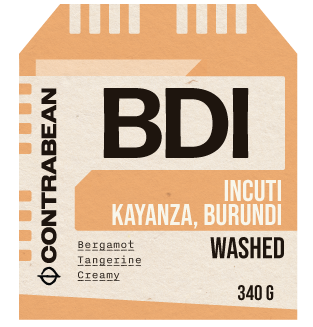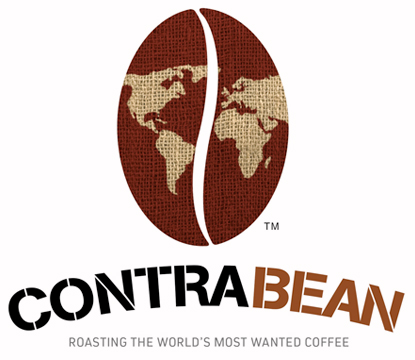Burundi, Incuti - Washed
Contrabean Roasting Company









Burundi - Incuti
Kayanza province, Burundi - Washed Process
Location: Kayanza (now known as Butanyerera Province)
Farmers: Small holder farmers in the commune of Butaganzwa
Altitude: 1,950 m asl
Varietals: Bourbon
Process: Washed
Drying: Raised Beds
We taste: Bergamot, tangerine, chocolate, floral, creamy, sweet.
Pricing Transparency ($/Lb)
Contrabean Cost = $US 5.15
Shipping to Contrabean = $CAD 0.60
Final Cost to Contrabean = $CAD 7.81
We (KW Coffee Collective) were lucky to have been among the first roasters in North America to taste this delicious coffee last fall when our friends at JNP began their North American road trip. Harvest was undreway and this coffee was hand processed and sent for tasting. Incuti means "Friends/Family" in Kirundi.
In Burundi, coffee farmers are smallholders. Each farmer owns about 25–50 trees on average — think of it as garden-sized farming. In other words, a processing station typically represents the work of roughly 1,000 farmers. These coffees are community lots, and this one comes from the commune of Butaganzwa.
Grown near the high-altitude Kibira Rainforest, amidst tea, banana, bean, and cassava plants, these exceptional coffee cherries are now a long-term addition to the JNP Coffee family. The Kibira Rainforest lies within Kibira National Park, which spans 400 square kilometers and extends across the Congo-Nile divide in the mountainous northwest region of Burundi. This rainforest provides a unique, cooler climate that enhances the distinctiveness of Incuti coffee.
Frederic, the producer, is one of JNPs partners at origin. He is a past winner of the Cup of Excellence in Burundi. When Jeanine of JNP served on the COE jury, Frederic learned about JNP Coffee’s Dushime® premium program from friends in another province and sought JNP out on behalf of his group of coffee farmers.
Whenever Jeanine of JNP returns to Burundi for pre-harvest, harvest, or post-harvest training, she visits the mills to provide guidance to our partners. In 2024, we invited them to our Rainforest Alliance training in March to ensure they understood key assessment factors for their wet mills, how to maintain process transparency and green coffee lot traceability, and which changes to implement to minimize environmental impact and promote sustainable practices.
